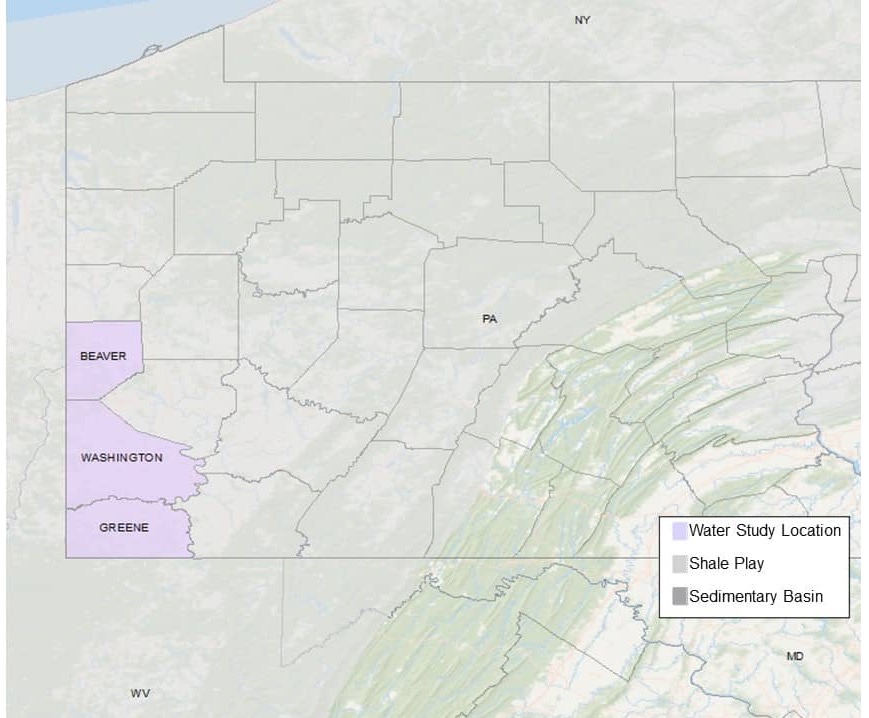Using Geoscientific Analysis and Community Engagement to Analyze Exposures to Potential Groundwater Contamination
Read the full Research Report here
The overall goal of this study is to evaluate potential linkages between unconventional oil and gas development (UOGD) and groundwater contamination in a tri-county region of Pennsylvania with many overlapping potential sources of contamination. The analysis will be informed by focus groups in the region to help identify areas of community concern. The team plans to produce a broadly applicable framework to study the relationship between specific UOGD processes and potential groundwater contamination. The investigators will apply the following methods to achieve their goals:
- Combine an existing data set of chemical measurements in groundwater with machine learning to isolate the influences of natural and anthropogenic processes on groundwater chemistry and to identify chemical signatures of UOGD.
- Evaluate linkages between UOGD and potential water contamination.
- Develop an approach to map locations of potential contamination from UOGD activities for application to future investigations of potential human exposures and health effects associated with UOGD.
- Collected and analyzed well water samples well water in “hot spots” identified through their analysis as likely locations of wastewater spills, in order to evaluate the team’s approach.



